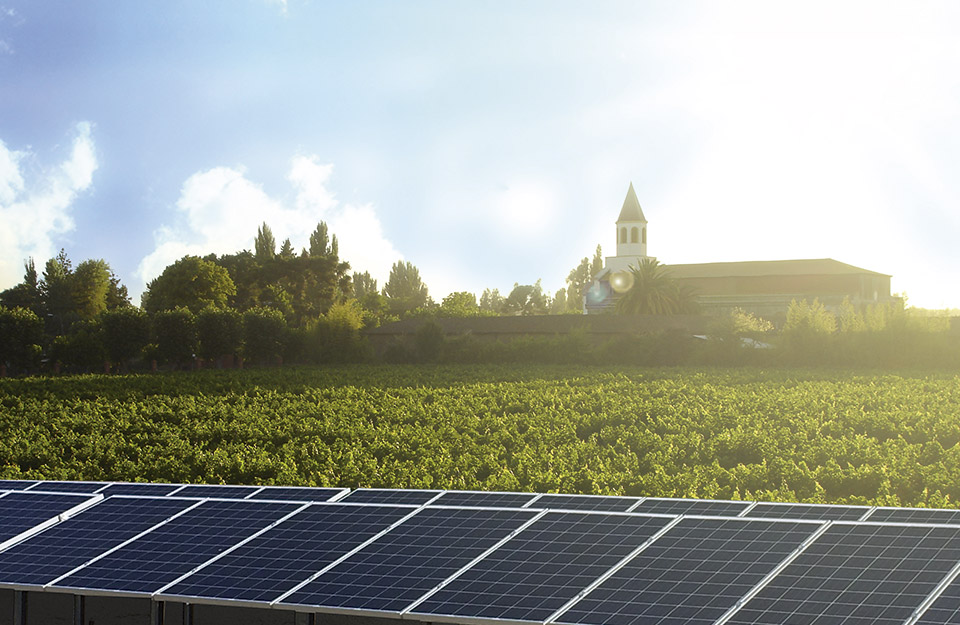
In just 10 years Chile has achieved that more than 80% of its wine exports are certified as sustainable, thanks to its Wine Sustainability Code, while most countries still do not have anything similar to ensure the responsible production of their wines. Through various measures and powerful changes, Chilean wineries are producing the wine of the future, one that seeks to combat climate change in its production.
The current trend is towards consumption of sustainable and environmentally friendly products, and wine is no exception. Thus, the conscious consumer wants to know where to look when it comes to sustainable and ethically produced wine. Chile, the leading wine exporter in the new world, knows this very well and has created a system to facilitate the search for premium wines that are also environmentally and socially responsible.
Chile has one of the most extensive sustainability accreditation programs in the world, with 79 wineries certified by the Chilean Wine Sustainability Code, representing more than 80% of Chilean bottled wine exports. These bottles are easy to identify on any shelf around the world, thanks to a prominent seal that highlights that it is a "Certified Sustainable Wine of Chile", a code that includes all types of Chilean wineries, regardless of their size, from small producers to the largest national cooperatives.
Initially launched in 2010, the Chilean Wine Sustainability Code has ensured that in just 10 years the country has achieved that more than 80% of its wine exports are certified in terms of sustainability and social responsibility. This at a time when most countries still do not have a Sustainability Code that guarantees the responsible production of their wines.
What does it mean for a bottle of Chilean wine to have the "Sustainability Certificate"?

First, it indicates that the winery has been evaluated and certified by independent judges to verify that it meets the multiple standards of the country's Sustainability Code. These standards are divided into sections covering agricultural practices, winery labor-including bottling and packaging-and social responsibility, as it relates to workers and surrounding communities.
In the vineyard, certification covers sustainable soil management, disease and weed control, the use of fertilizers and other chemicals, and responsible water consumption, among other principles.
In terms of sustainable practices in the winery, the code examines a winery's efforts in waste reduction and recycling, energy use, industrial water management, pollution prevention and the reduction of emissions and waste. Even the winery's air conditioning system is taken into account, as it contributes to its overall environmental impact.
Today, without a doubt, the main sustainability problem in Chile is the lack of water and its efficient use, as a consequence of the prolonged drought we have been suffering for many years, which is why Chile's sustainability program has worked to improve irrigation practices, using meteorological information and technology in the field to increase efficiency in the use of water. Almost all Chilean vineyards now have technified irrigation systems, especially drip irrigation, which is the most efficient. In addition, they are investing in hydraulic infrastructure such as wells and dams and developing projects that, for example, allow the reuse of industrial water for irrigation.
Each winery has a plan to optimize the use of electricity and fuel, with clear and verifiable objectives for both the winery and the vineyards. They are evaluated on the efficient management of heating, ventilation and cooling, which is part of the reduction of energy consumption in all facilities.
In terms of energy, the wineries have modified their lighting policy, replacing the entire system in the warehouses and cellars with LED lights, photovoltaic lights and motion sensors. Another example is that the new bottling lines use high-efficiency steam generation systems that replace the need for fossil fuels, as well as a heat recovery system.
The focus in recent years has been on getting Chilean wineries to use renewable energy. Many wineries already produce electricity through photovoltaic plants. Each of them are setting goals and deadlines to supply their wineries, vineyard irrigation and offices with solar energy as soon as possible.
Wine against climate change
The Chilean sustainability program launched a new carbon footprint project to establish science-based carbon reduction targets to help combat climate change. An important group of Wines of Chile wineries, representing more than 60% of Chile's bottled wine exports, have joined a sector-wide carbon footprint measurement initiative aligned with Science-Based Targets Organization objectives. The goal is for these wineries to make an impact using Science-Based Targets' technical and scientific information.
Chilean vineyards are already taking measures to counteract the effects of climate change, which threatens to destroy the acidity of wines, and different sustainable development plans are beginning to be considered, including planting vineyards in other latitudes or trying varieties that have always shown difficulties in maturing and that could now save the typicity of certain wines.






